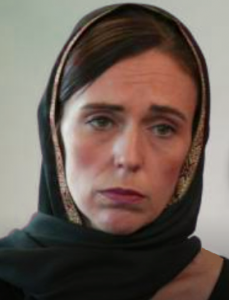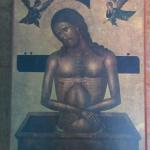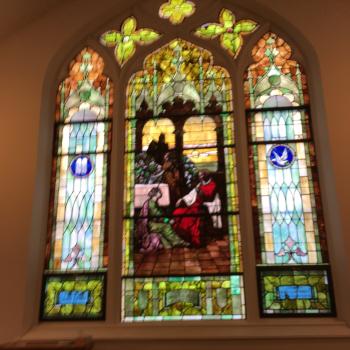
New Zealand Prime Minister Jacinda Ardern’s response to the horrific mosque shootings in the city of Christchurch has been rightly hailed as exemplifying strong and compassionate leadership. Her (and her country’s) combination of compassion and resolve, lamentation and action, demonstrates what a national response to a tragedy can look like in a way that looks downright enviable from within the present American context.
Still, I have to wonder whether every part of that response is fully translatable. I’m not talking here about guns or Islamophobia, although those things are certainly worth interrogating. I’m talking, rather, about the more innocuous narratives societies tell themselves about their own true nature.
Repudiating (again rightly) the hideous ideology of xenophobia and the violence it has once again led to, Ardern recently stated,
“Many of those directly affected by this shooting may be migrants to New Zealand, they may even be refugees here. They have chosen to make New Zealand their home. It is their home. They are us. The person who has perpetrated this violence against us is not.”
As an aspirational statement, the sentiment behind it is laudable. If, as Gandhi said, the true measure of society is how it treats its vulnerable members, then any society that aspires to be a moral one should choose to identify with victims of violence rather than perpetrators; that is, to repudiate acts of violence and stand with those targeted by such acts. It’s apparent enough in context that this is what Ardern really meant.
And yet on hearing the above statement, some part of me couldn’t help hearing echoes of the historically naïve refrain, often repeated in the face of violence against the vulnerable, that “this is not who we are.” In the language of American mythos, such statements are not unrelated to a particular shorthand, rarely if ever questioned in U.S. political discourse, in which “American” is an all-purpose adjective for anything positive and “un-American” for anything negative. It is a mythos by which we constantly seek to reassure ourselves of our own unique and intrinsic goodness.
To be sure, my hearing is undoubtedly influenced by my own context, and it may not be a fair comparison. New Zealand, after all, is not the United States, and given the rarity of mass shootings in the former country relative to the latter, perhaps New Zealanders can indeed say more credibly that the shooting does not reflect who they are as a society. I do not have the knowledge or background to comment on the vicissitudes of New Zealand’s history. And I hope I’ve already made it clear that my intention is not to equate Ardern’s leadership, which from what I can tell is genuinely admirable, with the empty clichés of exceptionalist mythos. Yet, sadly, the shooting and the ideology behind it have become a part of New Zealand’s ongoing history, a part of who they are. And, for better or worse, so is the response to it. It is the response that will largely determine whether the effects on their collective identity will, on balance, weigh more toward the better or the worse. That is the real lesson here for all of us.
Even where declarations that a given incident of individual or state-sponsored violence is “not who we are” are outright naïve, there is still a worthy aspiration to be gleaned from them. The best possible meaning of “this is not who we are” is that this is not who we want to be, not who we are at our best. It is a part of who we are – as individuals, as societies, as humanity – that must be acknowledged, painful as it is, if we are to have any hope of learning from it. The hopeful side of this painful reality is that we all – individuals, societies, humanity – are also more than who we are at our worst.
The truest response to hate and violence is to say that all of this is us. The violent and the vulnerable are us. The killing and the healing are us. Hate and love, division and solidarity, fear and faith are us. Shows of superficial strength based on fear, and the true strength of what Pope Francis has often called “a revolution of tenderness” : we all are capable of either, and must still and always choose, as the ancient Hebrews, between life and death, the blessing and the curse (cf. Deut. 30:19).
As Solzhenitsyn put it, “The line dividing good and evil cuts through the heart of every human being.” And he goes on to describe that shifting line as it is pulled in either direction:
“During the life of any heart this line keeps changing place; sometimes it is squeezed one way by exuberant evil and sometimes it shifts to allow enough space for good to flourish. One and the same human being is, at various ages, under various circumstances, a totally different human being. At times he is close to being a devil, at times to sainthood. But his name doesn’t change, and to that name we ascribe the whole lot, good and evil.”
One could add that the same line cuts through the heart of every human society, which after all is made up of human beings. Every good and every evil we witness is a chance to choose which of the two we want to win out.













